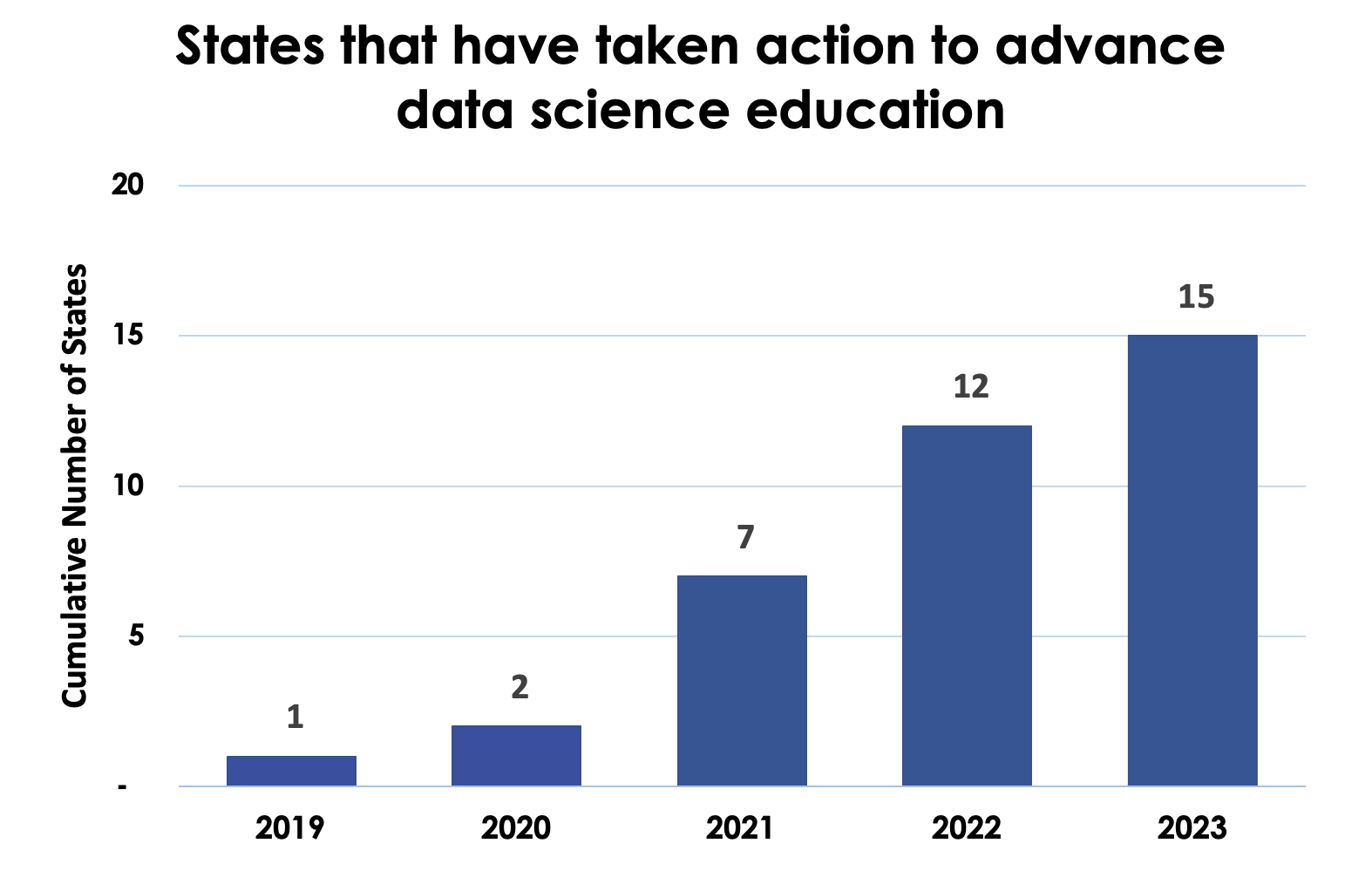Progress to date
In 2019, DS4E jump-started a national movement to promote, support and adopt efforts to move data science education forward. Since then, the coalition has sparked policy reform at the district, state, and federal levels to create enabling conditions for K-12 data science, facilitated collaboration among early adopters to spread emerging ideas and best practices, and discovered and curated resources that help catalyze the adoption of data science curriculum.
DS4E has also mobilized more than 270 diverse stakeholders to commit to actions supporting more than three million students and 25,000 teachers across 500-plus districts. The coalition directly supports ongoing work in 20 states (including Virginia, Oregon, California, Ohio, Utah, Arkansas, and Nebraska) to integrate data science into state standards, professional development, and curricula.
All of these efforts are rapidly building momentum for the data science education movement. The work of DS4E, alongside many other individuals and organizations, is resulting in increased awareness of the importance of data science education, increased availability of curriculum, materials, and professional development for teaching data science, new public and private sector commitments to data science, and state-level policy changes that enable the adoption of high school data science courses.
